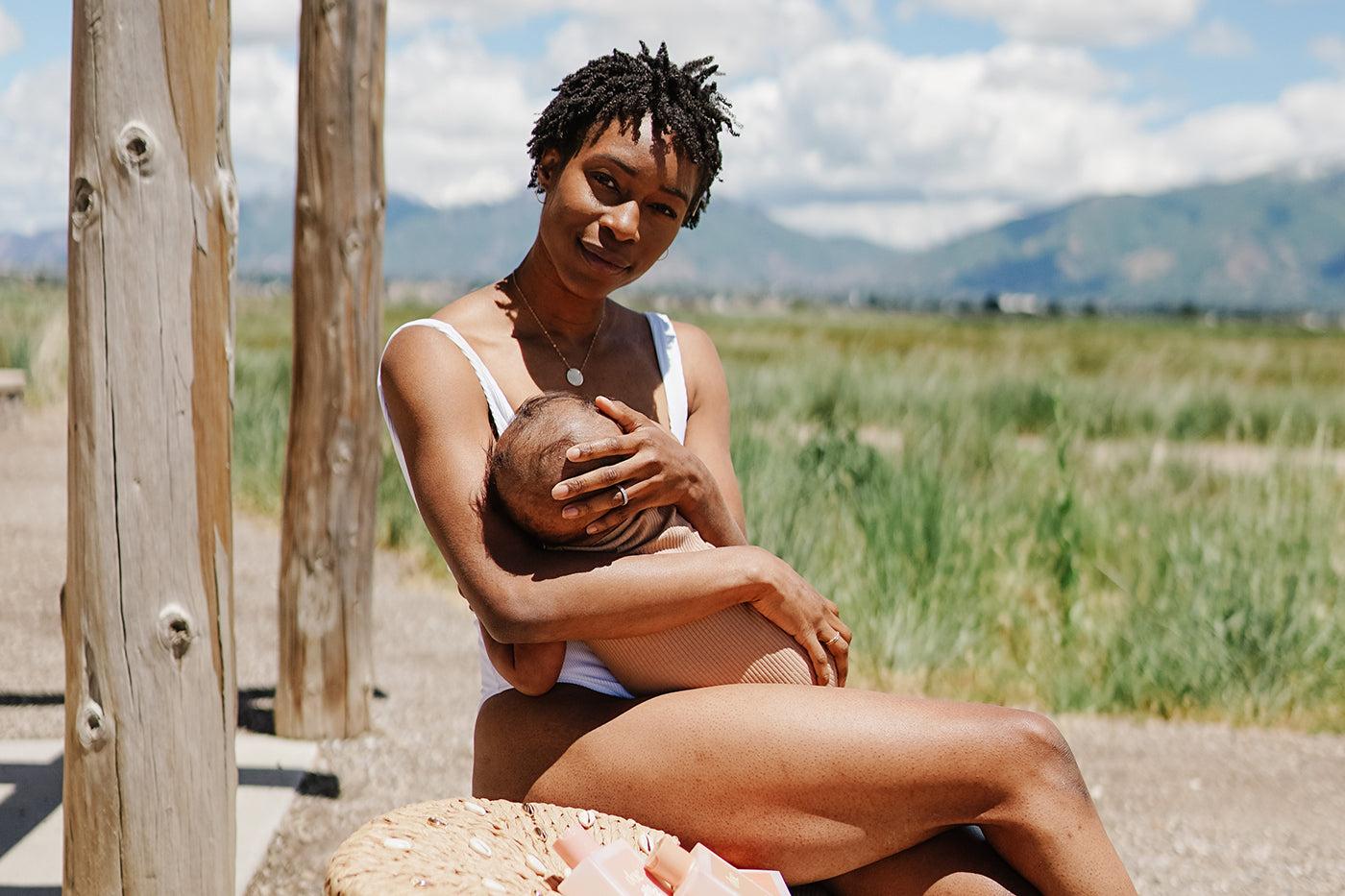PARENTS
Real Parents, Real Talk… on Breastfeeding: Fatima Dedrickson
Fatima Dedrickson, an author, influencer, and mother of four, shares her breastfeeding experience in honor of Black Breastfeeding Week.

Written by
Happiest Baby Staff

In honor of Black Breastfeeding Week, we’re interviewing a few moms to gain a better understanding of their experiences with breastfeeding and motherhood as Black women.
As the mother of four children, author and influencer Fatima Dedrickson, has been exposed to a whole range of parenting experiences…especially when it comes to breastfeeding.
“I love being pregnant, and I love birth. It’s the after—the breastfeeding—that has been hard for me,” Fatima says.
Part of the challenge was not knowing what to expect. “My first one was probably most traumatic. I had no idea what was going on,” Fatima recalls. “It hurt so bad! That’s something people don’t talk about.”
With her first child, Fatima battled everything from cracked nipples and engorgement to painful mastitis and unpredictable milk supply.
“I remember sitting in the shower and letting the pressure and heat soothe my boobs. I was kind of traumatized,” she says. “The first two weeks I wanted to quit. I think the hardest battle is feeling that guilt of, am I giving him enough?”
Though the road was rocky, Fatima stuck it out and breastfed her first child for a year. She also breastfed her second and third children, each for about six months. Then, came baby Zion, her fourth baby.
“I actually probably have had the best experience with my last one,” she says.
Fatima thinks part of it could be that she knows it’s her last child…but she thinks a big part of her success has been due to the support she’s received from her hospital.
“The lactation people have called me every week to find out how I’m doing, how things are going, how the baby’s latching, and how much he’s eating,” she says. “I was shocked, the first time they called me!”
Reflecting upon her experience with her first child, Fatima realizes that it wasn’t just the medical issues that made her journey so tumultuous…she sees now that she was lacking adequate support from her OB. She remembers waiting for more than an hour to be seen for less than 10 minutes—for visits during which she wasn’t asked how she was doing or feeling. And she certainly didn’t receive the post-birth follow-up care that she’s had with her fourth.
“I don’t feel like I left the hospital confident,” Fatima says about her first experience.
She doesn’t know what to attribute this poor experience to, but as she’s thought more about the disparities in the healthcare that Black women receive, she has begun to wonder if race had anything to do with her doctor’s dismissiveness. Knowing what she knows now (and having used a doctor that genuinely showed interest and compassion through her subsequent pregnancies), Fatima wishes she’d spoken up with her first doctor—or found a new provider mid-pregnancy. This is something she impresses upon other mothers.
“If you don’t feel comfortable, or if you don’t feel like your OB is meeting your needs emotionally, remember that this is your baby and your pregnancy. You’re allowed to switch,” she advises. “Don’t be afraid to stand up for yourself and baby and say, ‘I don’t feel like you care.’ I wish I had switched, but I didn’t know better.”
Above all, she emphasizes the importance of listening to your “mom gut.”
“Be strong enough to stick to your gut to do what you want to do. Don’t let a doctor or a nurse tell you what to do if you don’t feel comfortable doing so,” she says. “Nobody can tell you what to do with your child. You know what’s best; always trust in that. Your mom gut.”
She also wants moms to have realistic expectations about breastfeeding.
“We’re told it’s so natural, and this is what you’re supposed to do, but there are women who can’t. Their milk doesn’t come in—or it does, but they spend so much time pumping, and it messes with them mentally. Or they have inverted nipples…none of this gets talked about,” she says. “It is harder for more women than it is easy.”
But even though breastfeeding can be hard, Fatima says it gets better.
“It gets better once you stick out the first month or two. It’s okay to feel like it sucks. It does. You’re going to feel like a cow for a while,” she says. “And, whether you’re bottle feeding or breastfeeding, fed is best and that’s so important to remember. Whichever way you feed the baby, fed is best.”
Related stories:
- Where Black Moms Can Turn for Breastfeeding Help
- Unpacking the Racial Disparities in Breastfeeding
- Real Parents, Real Talk… on Breastfeeding: Keyma Morgan
- Real Parents, Real Talk… on Breastfeeding: Christina Kwarteng
- Real Parents, Real Talk... on Breastfeeding: Enocha Tellus
Disclaimer: The information on our site is NOT medical advice for any specific person or condition. It is only meant as general information. If you have any medical questions and concerns about your child or yourself, please contact your health provider.
SHARE THIS ARTICLE
MOST LOVED
Sleepytime Sidekicks












